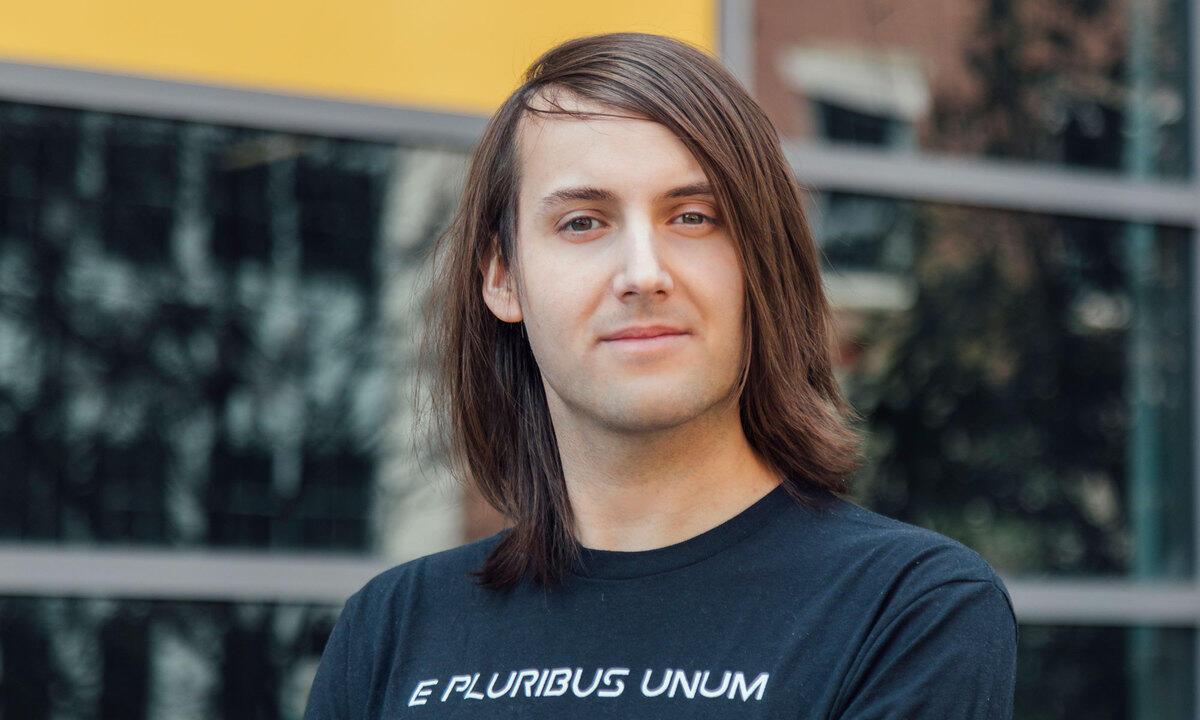
April 5, 2024
Graduate student James Vulcanoff hopes to make solar power more efficient
Vulcanoff is among more than 60 students sharing their work at the VCU College of Engineering Research Showcase on April 10.
Share this story
James Vulcanoff, a mechanical and nuclear engineering graduate student, wants to improve power production efficiency in the realm of renewable energy. Their work using computational fluid dynamics will be featured at the Virginia Commonwealth University College of Engineering’s Research Showcase on April 10, where graduate students such as Vulcanoff will share insights and present posters to engineering colleagues, industry leaders and academic peers.
Vulcanoff grew up in Henrico County near the VCU campus and developed an interest in the College of Engineering’s growing nuclear program. After completing their undergraduate degree at Virginia Tech and working in industry briefly, they decided to pursue graduate school at VCU, where Lane Carasik, Ph.D., assistant professor of mechanical and nuclear engineering, became and advisor and mentor.
“Dr. Carasik had a large impact on how I see research and work as a whole,” Vulcanoff said. “The kindness Dr. Carasik showed me and his willingness to listen and guide me through my career shift from physics to mechanical and nuclear engineering had a profound influence on my life.”
Vulcanoff’s focus has been two major projects – one related to pipes, the other related to storage tanks – that use computational fluid dynamics. The starting point, in terms of renewable energy, is the sun.
By focusing the sun’s energy to a single point, concentrated solar farms use heat to create molten salt. In liquid form, this salt acts like water, and it can be used at higher temperatures. Running molten salt through a pipe with water on the outside turns the water into pressurized steam, and that steam can then be used to spin turbine blades and create electricity more efficiently than existing technology.
“Optimizing the molten salt’s flow to effectively transfer its thermal energy is crucial for efficiency,” Vulcanoff said. “In my first project, I run computational simulations that test different rifled pipe designs.”
Rifled pipes use geometric surfaces within the pipe to create centrifugal forces in the mass flow. The goal is to distribute heat evenly through the pipe using the unique rifled geometries, and by analyzing the heating and cooling of the fluid system, Vulcanoff can assess the thermal performance factor of different pipe designs.
Their second project involves nozzle inlets that inject molten salt into a tank for the storage of thermal energy.
“By ensuring the best position and angle of injection for the nozzles that deliver molten salt, we retain more heat and make the power system more efficient,” Vulcanoff said. “I run computational simulations that test different nozzle inlet configurations,” which can highlight the efficiency of the tank design.
In addition to Vulcanoff’s work on renewable energy, the April 10 research showcase will feature more than 60 students with projects touching on a broad range of topics – from computer science and biomedical engineering to pharmaceuticals and life sciences. The event, which will be held at the Engineering Research Building, is part of VCU Research Weeks, which celebrates the university’s groundbreaking discoveries and continued quest to improve the human condition.
For the graduate students such as Vulcanoff looking to change the world, they recognize how the VCU College of Engineering has spurred their journeys.
“VCU Engineering has done a lot to help me with making connections and collaborating with industry professionals,” Vulcanoff said. “Whether through internships with groups like Argonne National Laboratory or collaborations with Idaho National Laboratory in regards to high-performance computing work, I received many opportunities to advance my education and career.”
Subscribe to VCU News
Subscribe to VCU News at newsletter.vcu.edu and receive a selection of stories, videos, photos, news clips and event listings in your inbox.













